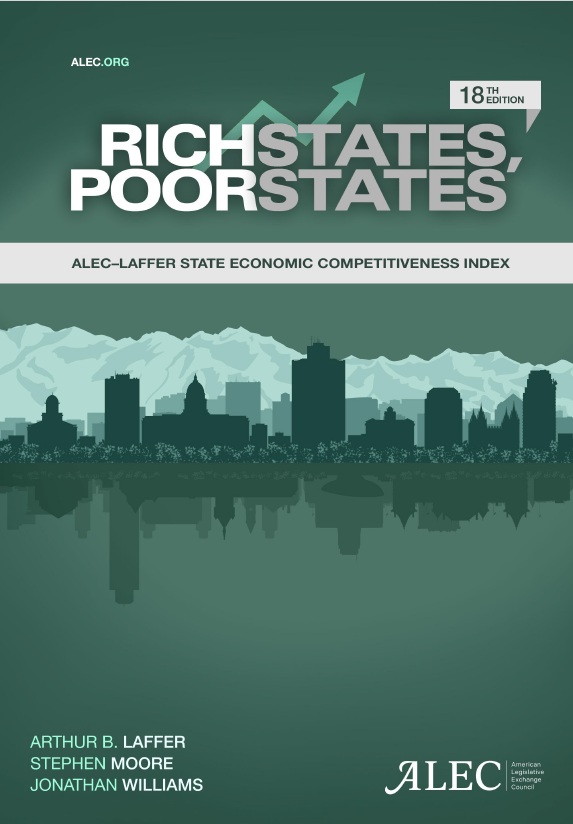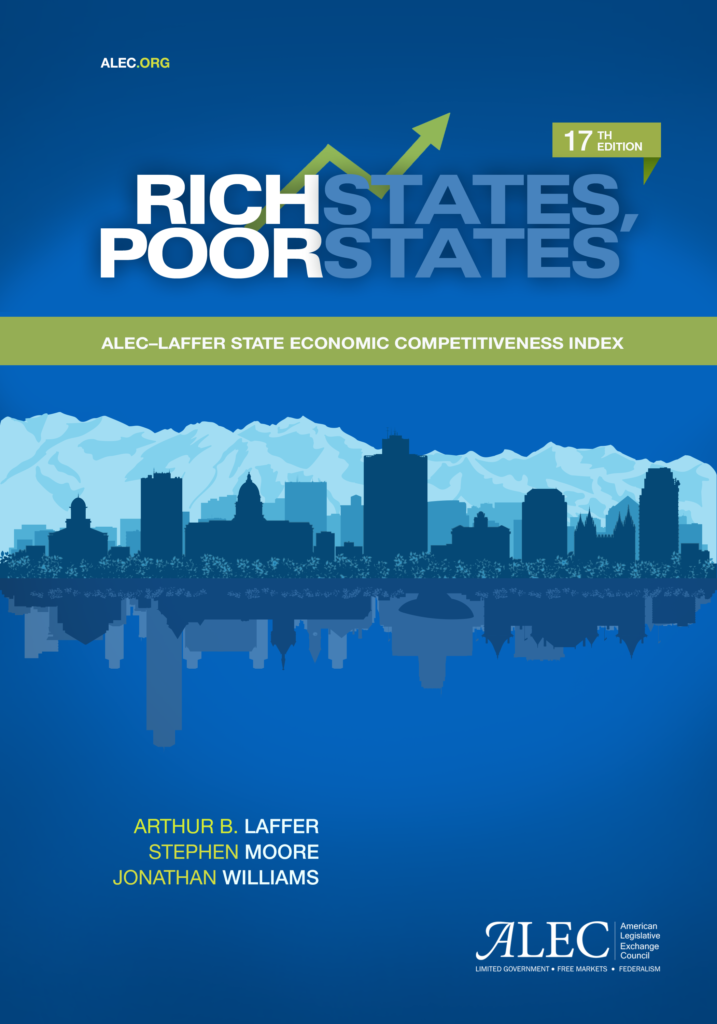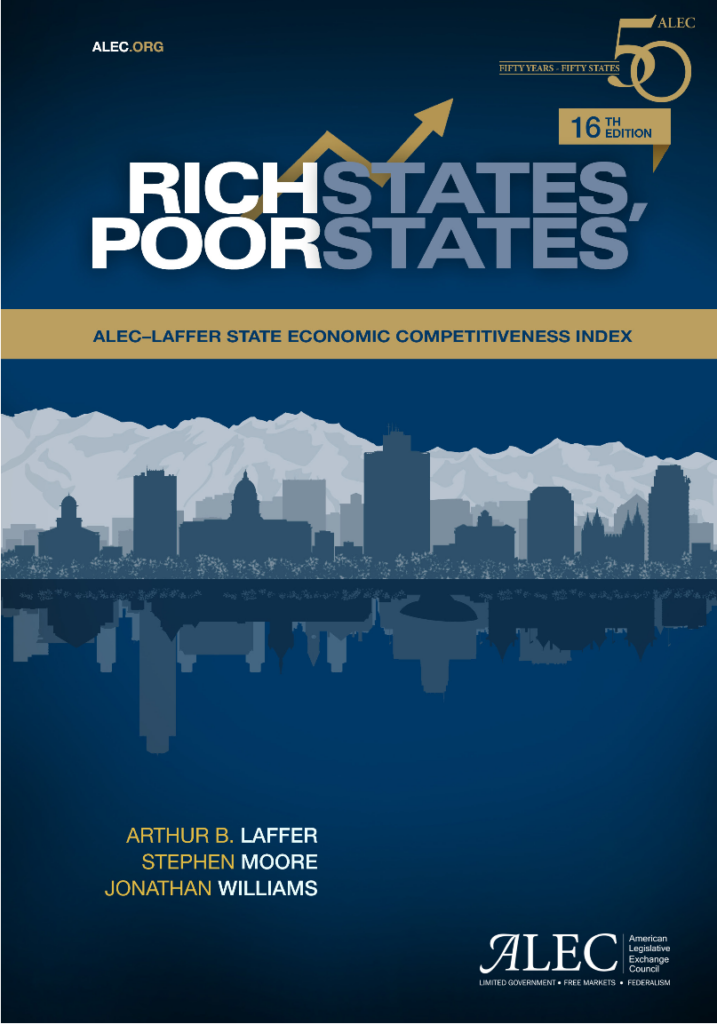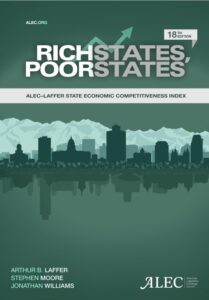The 14th edition finds that even through the pandemic, states with policies such as low or no income taxes and worker freedom are more economically competitive and better positioned for wage growth, job creation and domestic in-migration compared to states with higher taxes and government spending. The new rankings also reveal that, as proven by new 2020 Census data, Americans “vote with their feet” by moving from high-tax to low-tax states.
“Utah, at the top of the rankings for the 14th year in a row, solidified its well-deserved first place spot this year by prioritizing sound economic policy,” said ALEC chief economist and report co-author Jonathan Williams. “Utah has an incredibly strong track record of pro-taxpayer reforms in recent years, including the adoption of a flat personal income tax rate, pension reform for its previously engangered system, and the state’s innovative approach to property tax reform.”
The 15 economic policy variables used by the authors to rank the economic outlook of states have proven over time to be influential for state competitiveness and growth. This report shows that cutting taxes, paying down debt and maintaining free market policies have significantly helped states like Florida, Georgia and Texas improve their national rankings this year.




